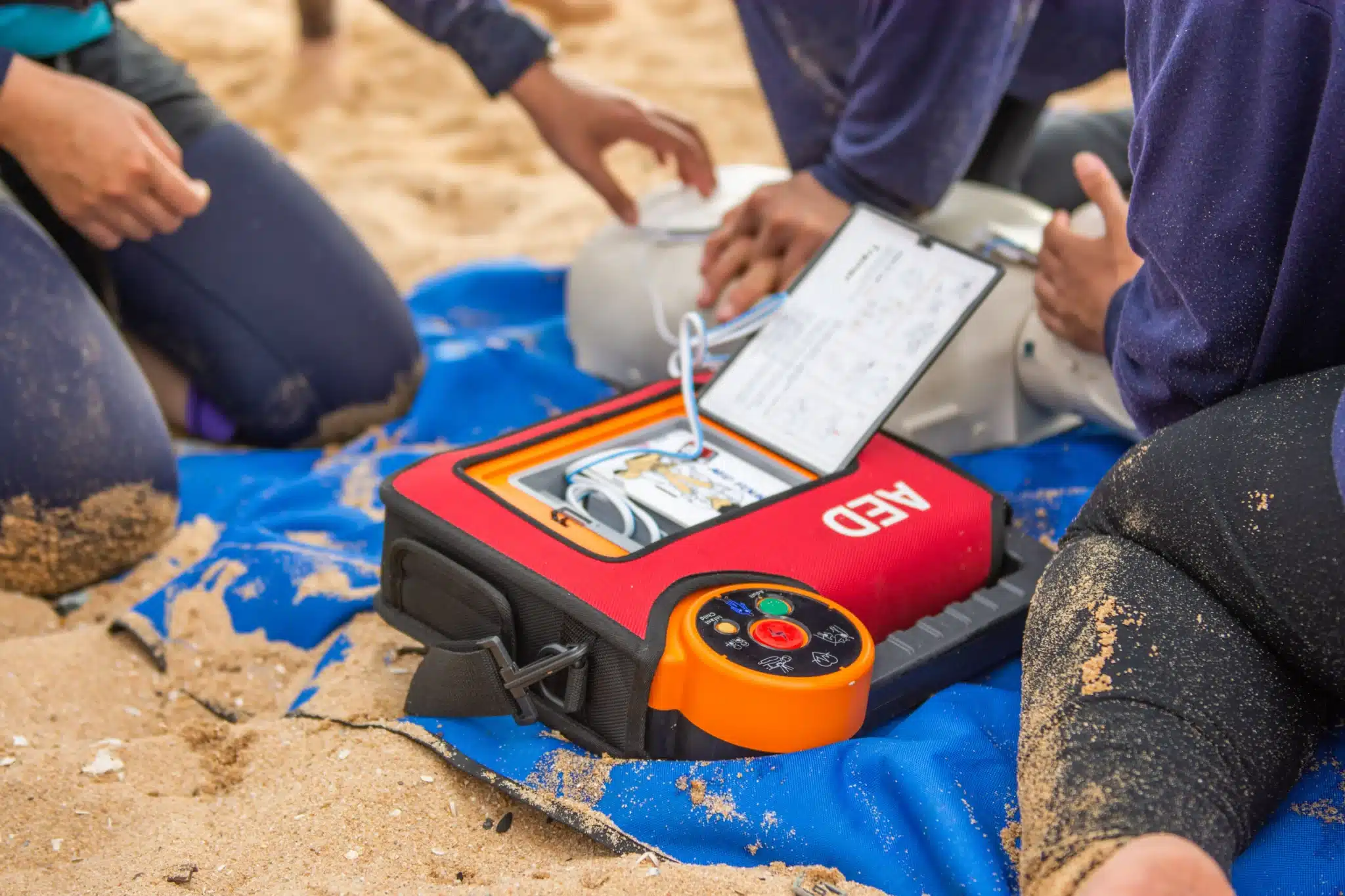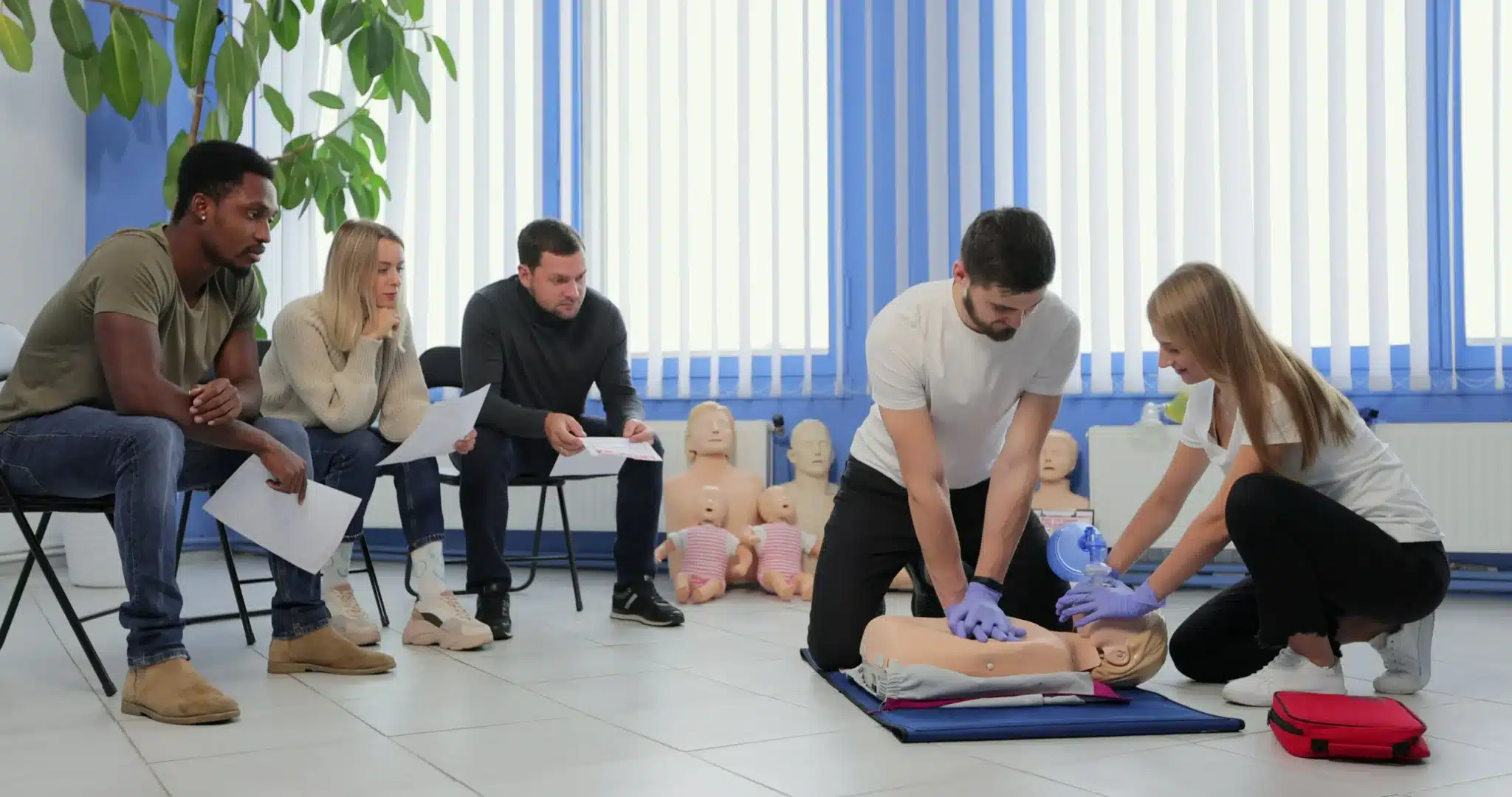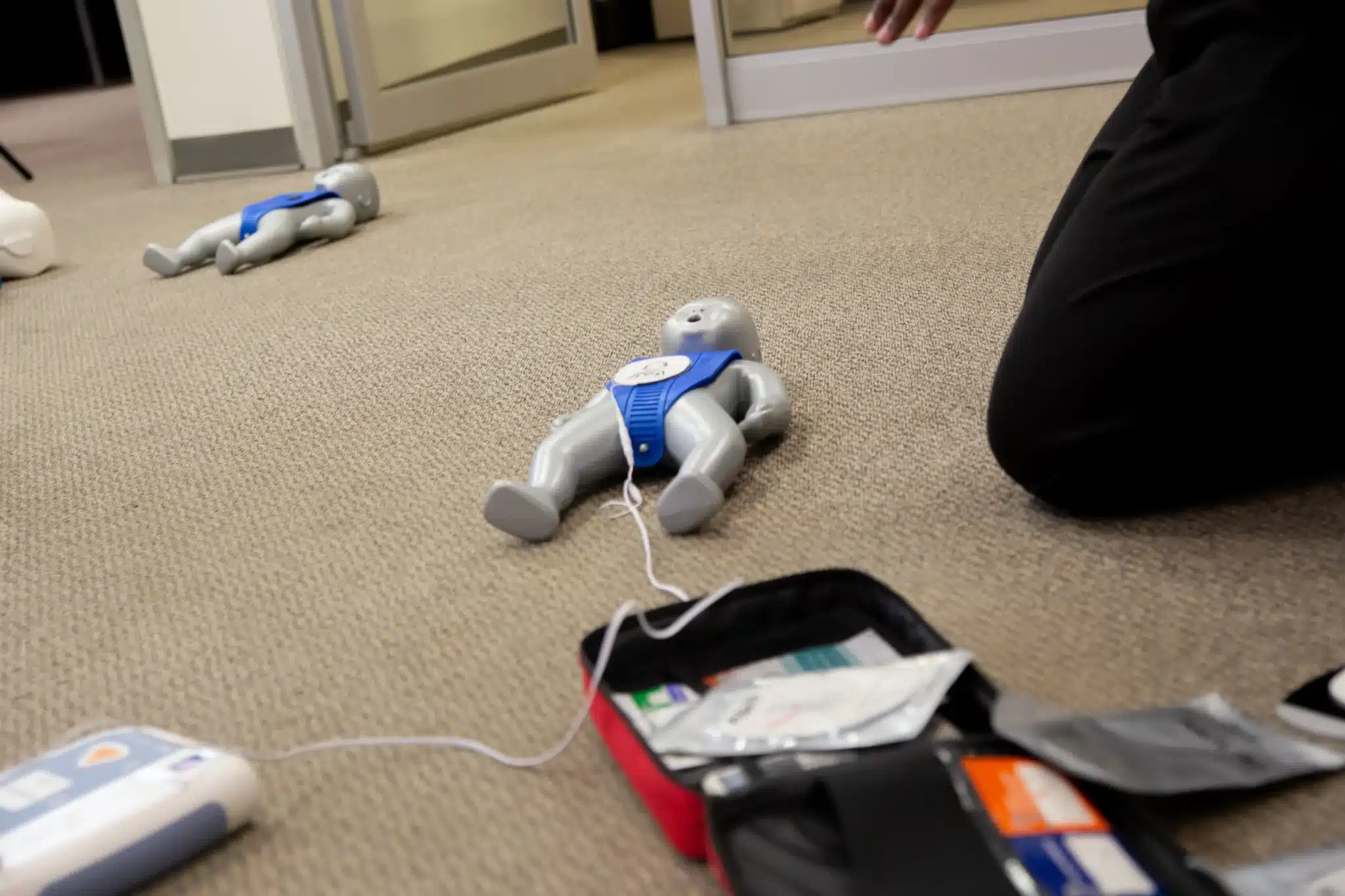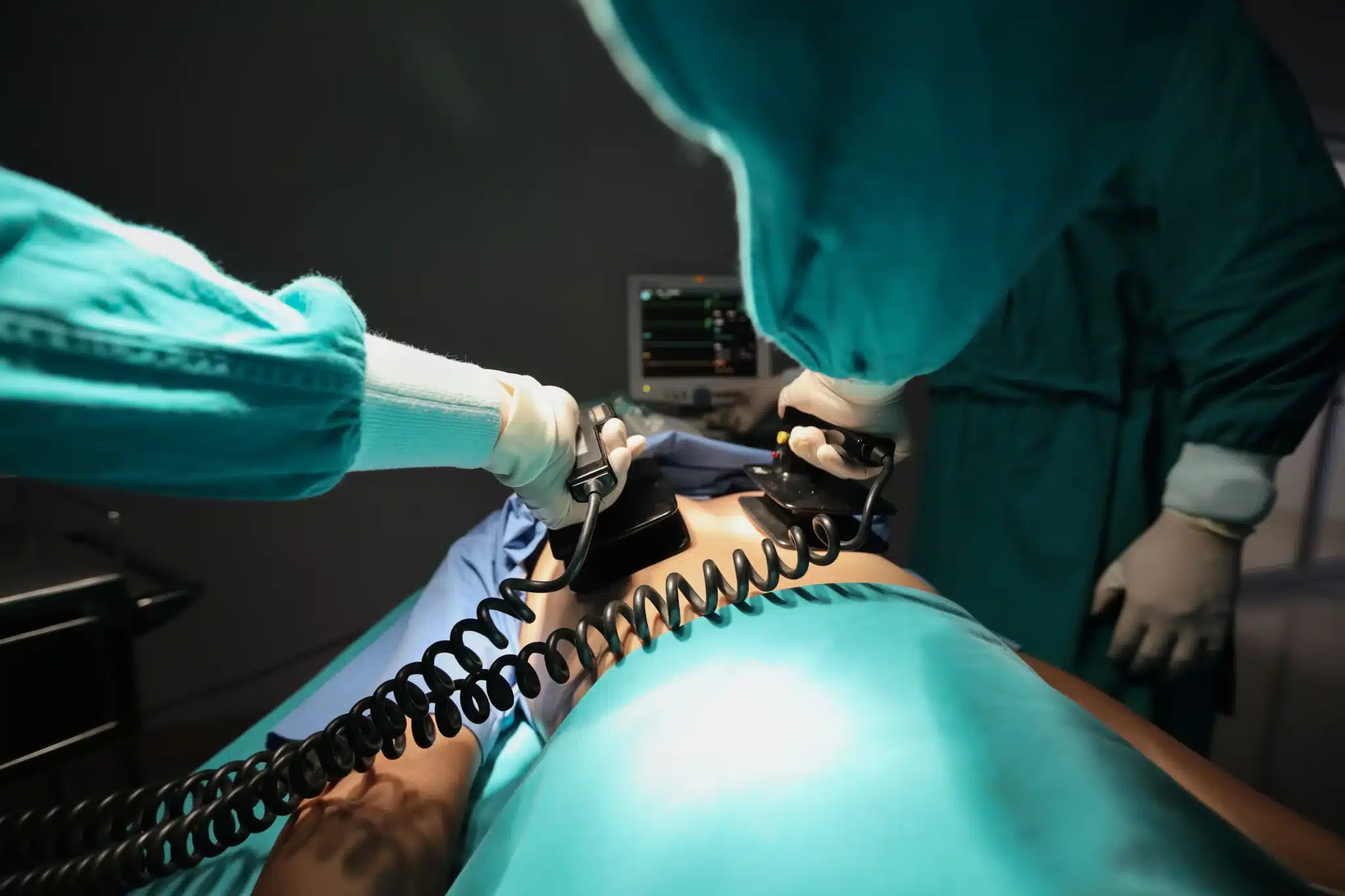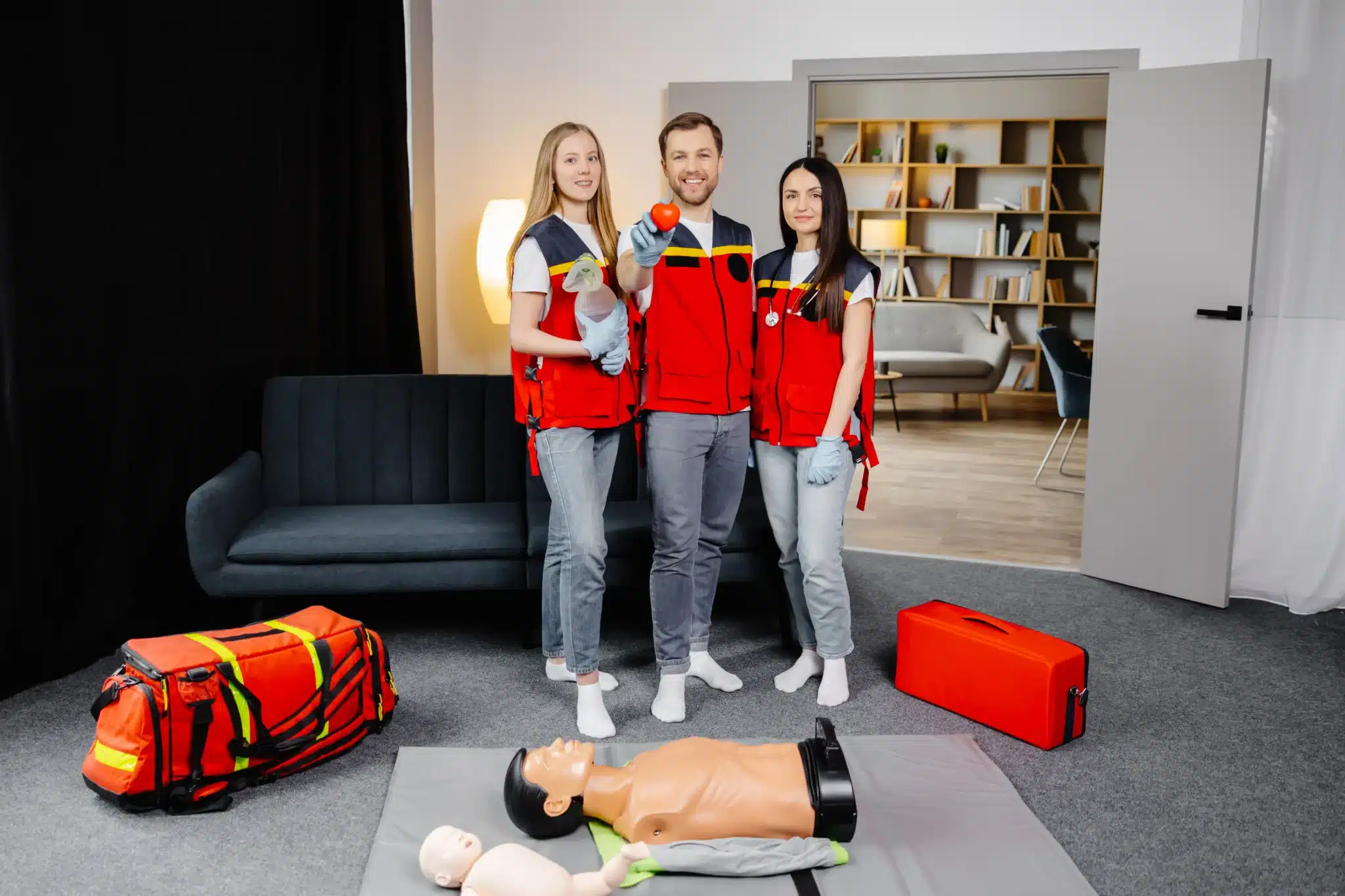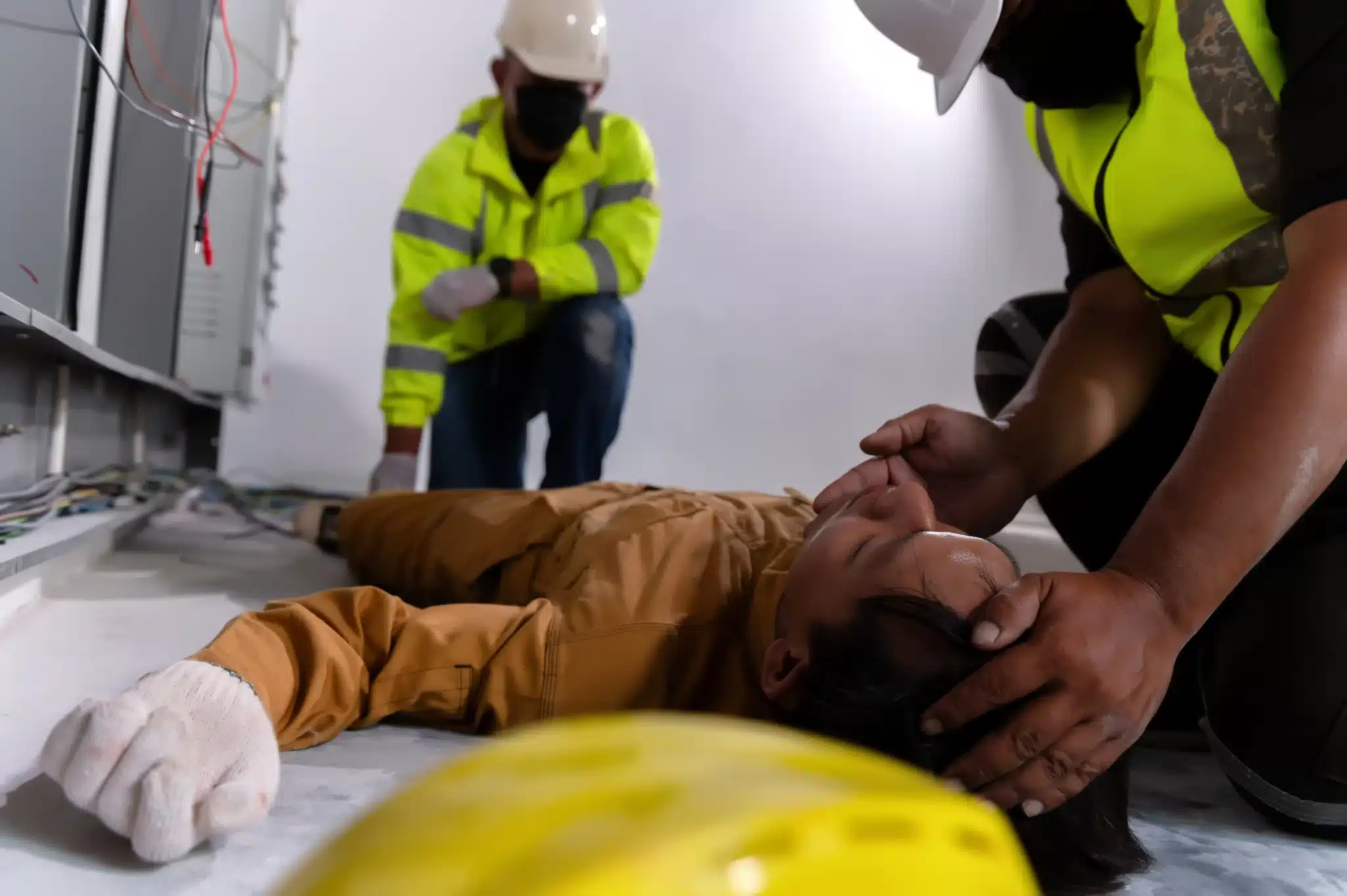Are you ready to become a life-saver? BLS, ACLS, and PALS certifications are crucial for healthcare providers, childcare professionals, and anyone who wants to be equipped to handle medical emergencies. This guide will navigate you through the world of BLS ACLS PALS training in Fremont, providing valuable insights into each certification. We’ll explore the core skills you’ll learn, the different training formats available, and how to choose the right program for your needs. We’ll also discuss the costs associated with each certification and offer tips on preparing for your training. Empower yourself with the knowledge and skills to make a real difference in critical situations.
Key Takeaways
- Choose the right life support certification: BLS provides a foundation in life-saving techniques, ACLS focuses on advanced cardiac care for healthcare providers, and PALS addresses pediatric emergencies. Select the certification that aligns with your career or personal goals.
- Find a training program that fits your needs: Consider in-person, online, or hybrid learning options, look for qualified instructors, and choose an accredited program like those offered by Fremont CPR Classes. Flexible scheduling and group discounts can make training more accessible.
- Stay certified and up-to-date: Renew your certification every two years and pursue continuing education opportunities to maintain your skills and knowledge. Staying current with the latest guidelines ensures you’re prepared to provide effective care in emergencies.
What are BLS, ACLS, and PALS?
These three certifications represent different levels of life-saving expertise. Whether you’re a healthcare provider, a childcare professional, or simply someone who wants to be prepared for emergencies, understanding the distinctions between BLS, ACLS, and PALS is crucial.
BLS: Your Life-Saving Foundation
BLS, or Basic Life Support, provides the foundational skills necessary to respond to life-threatening emergencies. This training covers essential techniques like CPR, recognizing the signs of a heart attack or stroke, and using an AED. BLS certification emphasizes high-quality chest compressions and rescue breaths, providing the first line of defense in critical situations. It’s the cornerstone for any medical professional and a valuable skill for anyone. For those in the Fremont, Newark, and San Jose area, Fremont CPR Classes offers this essential training.
ACLS: Mastering Advanced Cardiac Care
ACLS (Advanced Cardiovascular Life Support) builds upon the foundation of BLS. This advanced course equips healthcare providers with the knowledge and skills to manage complex cardiovascular emergencies, including cardiac arrest, stroke, and acute coronary syndrome. ACLS training delves into ECG interpretation, pharmacology, and advanced airway management. It’s a crucial certification for doctors, nurses, paramedics, and other healthcare professionals working in critical care settings. Fremont CPR Classes provides comprehensive ACLS training to help healthcare professionals in Fremont and surrounding areas stay at the top of their game.
PALS: Specialized Pediatric Life Support
PALS, or Pediatric Advanced Life Support, focuses on the specific needs of infants and children facing life-threatening medical emergencies. This specialized training covers respiratory distress, shock, and cardiac arrest in pediatric patients. PALS certification emphasizes rapid assessment, effective interventions, and team dynamics in pediatric emergency care. It’s essential for pediatricians, nurses specializing in pediatric care, and other healthcare providers working with children.
Find BLS, ACLS, and PALS Training in Fremont
Finding the right training program is key to mastering these life-saving skills. Whether you thrive in a hands-on environment, prefer the flexibility of online learning, or want a blend of both, Fremont offers various options to fit your needs. Let’s explore the different training formats available:
In-Person Training: Get Hands-On
In-person training offers a dynamic learning experience perfect for those who value hands-on practice and direct interaction with instructors. This format allows you to develop muscle memory and confidence through repetitive drills and real-time feedback. Fremont CPR Classes offers in-person training, providing a supportive environment to ask questions and practice skills. This approach is especially beneficial for mastering essential techniques like chest compressions, airway management, and ventilation.
Online Courses: Learn at Your Pace
Online courses provide flexibility, allowing you to learn at your own speed and convenience. This format is ideal for busy professionals or anyone with a demanding schedule. You can access course materials and assessments anytime, making it easy to fit training into your life. The American Heart Association’s RQI program is a popular online option for BLS, ACLS, and PALS certification. This self-directed approach empowers you to control your learning journey and revisit materials as needed.
Hybrid Learning: Combine the Best of Both
Hybrid learning combines online learning with in-person skills sessions. This format allows you to complete the theoretical coursework online at your own pace, then attend a hands-on session to refine your skills. Bay Area CPR offers hybrid learning options, providing a flexible yet comprehensive training experience. This approach maximizes your learning efficiency by allowing you to absorb information independently and then apply it in a practical setting with expert guidance.
Top Fremont Training Providers
Finding the right training center is key to a positive learning experience. Here are a few reputable providers offering BLS, ACLS, and PALS courses in Fremont:
Fremont CPR Classes
Fremont CPR Classes offers flexible courses designed to accommodate various learning styles and schedules. They’re known for their high-quality, American Heart Association BLS , ACLS, PALS, CPR, and First-aid courses right here in Fremont. They also offer helpful resources like a Northern California CPR directory and discounted group classes. Reach out through their contact page to learn more.
American Heart Association Training Centers
The American Heart Association’s RQI program is a popular and efficient way for medical professionals in Fremont to get their official AHA BLS, ACLS, and PALS certifications. This modern approach keeps healthcare providers’ skills sharp. Fremont CPR Classes is a local AHA Training Center.
Safety Training Seminars
Safety Training Seminars provides AHA-certified courses in BLS, ACLS, PALS, and CPR in Fremont. A convenient feature is their ability to conduct on-site training, bringing the instruction directly to you.
California ACLS Training Institute
The California ACLS Training Institute offers online ACLS, PALS, and BLS certification and recertification courses, catering specifically to medical professionals in Fremont. This online option provides flexibility for busy schedules.
Course Content and Certification
This section covers what you’ll learn in each course and how to get certified. Understanding the curriculum and certification process will help you prepare for your training.
Essential BLS Curriculum
BLS, or Basic Life Support, provides the foundational skills needed to respond to life-threatening emergencies. The curriculum covers core life-saving techniques, including high-quality CPR for adults, children, and infants, how to use an AED (automated external defibrillator), and relief of choking. BLS training equips healthcare providers with the knowledge and skills to effectively follow algorithms, ensuring the best possible patient outcomes. It emphasizes teamwork, high-quality chest compressions, and effective ventilation techniques.
Key ACLS Course Components
The ACLS, or Advanced Cardiovascular Life Support, course builds upon the fundamentals of BLS. ACLS training typically includes comprehensive instruction on recognizing and managing cardiac arrest, stroke, and other cardiovascular emergencies. Simulation technology often plays a key role, allowing healthcare professionals to practice their skills in a realistic, controlled environment. This hands-on experience is crucial for developing confidence and competence in managing complex medical situations. For those looking for training options in Northern California, our directory can be a helpful resource.
PALS Training Focus
PALS, or Pediatric Advanced Life Support, focuses on the specialized skills needed to respond to emergencies in infants and children. The course covers a range of topics, including pediatric assessment, airway management, and CPR techniques tailored to young patients. PALS training emphasizes the importance of rapid assessment and intervention to improve outcomes in pediatric emergencies. You can contact us to learn more about PALS courses offered by Fremont CPR Classes.
Get Certified: Steps to Take
Earning your BLS, ACLS, or PALS certification involves a straightforward process. First, select the course you need and register for a class. Once registered, you’ll receive access to the official American Heart Association student materials. Study these materials thoroughly to prepare for the course and the certification exam. After completing the course and passing the exam, you’ll receive your provider card, signifying your certification. We offer group discounts for those interested in training together.
Training Costs and Pricing
Knowing the cost of training is an important part of planning your certification journey. Let’s break down the typical price ranges for BLS, ACLS, and PALS courses in Fremont. Remember, these are estimates, and contacting a specific provider like Fremont CPR Classes for a firm quote is always recommended.
BLS Training Costs
BLS (Basic Life Support) certification is the foundation for many healthcare roles and for anyone who wants to be prepared for emergencies. The AHA BLS CPR class covers essential CPR skills and how to use an AED. You can expect BLS certification to cost around $95 in Fremont. This investment equips you with life-saving skills applicable in various personal and professional settings.
ACLS Certification Costs
ACLS (Advanced Cardiovascular Life Support) certification builds upon BLS training, focusing on advanced interventions for cardiac emergencies. This course is designed for healthcare professionals who manage respiratory and cardiovascular emergencies. In Fremont, ACLS certification typically costs around $225 for initial certification, with renewal courses often available around $150.
PALS Course Costs
PALS (Pediatric Advanced Life Support) certification focuses on the specialized needs of infants and children facing life-threatening illnesses or injuries. Similar to ACLS, PALS training in Fremont is usually priced around $225 for initial certification and $150 for renewals. This course is essential for healthcare providers working in pediatrics, emergency medicine, or intensive care units.
Group Discounts and Deals
If you’re coordinating training for a group, inquire about group discounts. Many training centers, including Fremont CPR Classes, offer reduced rates for group bookings. This can make training more affordable and convenient. Contact Fremont CPR Classes directly to discuss your group’s needs and explore available discounts. For additional resources, check their directory of CPR training providers in Northern California.
Prepare for Training Success
Getting ready for your BLS, ACLS, or PALS training? A little prep work goes a long way. Here’s how to set yourself up for a smooth and successful learning experience.
Pre-Course Study Materials
Before your course begins, familiarize yourself with the official American Heart Association student manuals and any online resources provided. These materials offer a comprehensive overview of the course content, helping you get a head start and build a solid foundation for understanding key concepts. This preparation will be invaluable for grasping the material and passing your final exam, so you receive your certification card right away.
What to Expect in Training
Your training in Fremont will cover a range of life-saving techniques and protocols. Expect hands-on practice, interactive discussions, and real-world scenarios. Fremont CPR Classes creates a supportive and professional learning environment where you can feel comfortable asking questions and practicing your skills. You’ll leave feeling confident and prepared to respond effectively in emergencies.
Class Sizes and Learning
At Fremont CPR Classes, we keep our class sizes small to ensure personalized instruction and ample opportunity for hands-on practice. This approach allows our instructors to provide individual feedback and support, maximizing your learning. Smaller groups also foster a more interactive and engaging environment, giving you the attention you need to master these essential skills. For an even more affordable option, learn more about our group discounts.
Skills You’ll Gain
Life-saving skills empower you to confidently respond to emergencies. Whether you’re a healthcare professional, a childcare provider, or simply someone who wants to be prepared, BLS, ACLS, and PALS training provides essential knowledge and abilities.
BLS Skills
BLS certification equips you with the fundamental skills to respond to cardiac arrest and other life-threatening emergencies. You’ll learn how to perform CPR, use an AED, and provide basic life support care. These skills instill confidence and prepare you to act quickly and effectively in critical situations. This BLS training builds a strong foundation for any healthcare provider.
ACLS Skills
ACLS training takes your skills further, focusing on advanced cardiovascular life support techniques. You’ll gain expertise in managing respiratory and cardiac arrest, recognizing and treating strokes, and understanding the complexities of pharmacology in emergency situations. These advanced skills can significantly improve patient outcomes during critical events. Plus, an ACLS certification can help advance your healthcare career.
PALS Skills
PALS certification focuses on the specialized needs of infants and children facing medical emergencies. You’ll learn how to assess and manage pediatric respiratory and circulatory issues, administer medications appropriately, and provide specialized life support care tailored to young patients. PALS training is invaluable for anyone working with children, from healthcare providers to childcare professionals. This PALS certification can be a valuable asset.
Apply Your Skills in Real Life
The skills you gain through these courses extend beyond the classroom. Whether you’re responding to a medical crisis at work or a sudden emergency at home, your training will enable you to provide critical care until professional help arrives. Find CPR and first-aid classes in Fremont to practice these skills in a supportive environment. Knowing how to respond effectively can make all the difference in life-or-death situations. Consider taking a group CPR class for a discounted rate.
Maintain Your Certification
Once you’ve earned your BLS, ACLS, or PALS certification, staying current is key. Knowing the renewal process and how to access continuing education will keep your skills sharp and your certification valid.
Renewal Requirements
Your BLS, ACLS, and PALS certifications are typically valid for two years. Before your certification expires, you’ll need to retake the course and pass the exam. This ensures you’re up-to-date on the latest life-saving techniques and guidelines. Check your American Heart Association certification card for the exact expiration date and set a reminder a few months in advance so you have plenty of time to schedule your renewal course. Fremont CPR Classes offers a variety of courses to fit your schedule.
Continuing Education
Continuing education is a fantastic way to expand your knowledge and maintain your skills between renewals. Many providers offer continuing education courses designed for healthcare professionals. These courses often cover advanced topics and emerging best practices. Earning continuing education credits can demonstrate your commitment to professional development. Some providers, like eMedCert, offer continuing education credits with their certification courses.
Stay Updated on Guidelines
Staying current with the latest guidelines is crucial for providing effective care. Emergency cardiovascular care guidelines are regularly updated to reflect new scientific evidence and best practices. Ensure your training aligns with the current AHA and ECC/ILCOR guidelines. Reputable training providers, such as Fremont CPR Classes, incorporate these updates into their courses, ensuring you receive the most relevant and effective training. You can find more information on updated guidelines through resources like ACLS Certification California. Staying informed demonstrates your dedication to providing the highest quality of care.
Choose the Right Training
Finding the right training is crucial for mastering life-saving skills. Whether you’re a healthcare professional, a childcare provider, or simply someone who wants to be prepared for emergencies, choosing the right course is the first step. This section will guide you through key factors to consider when selecting your BLS, ACLS, or PALS training.
Factors to Consider
Think about your specific needs and goals. Are you looking for initial certification or recertification? Do you learn best in a traditional classroom setting or are you more comfortable with online learning? Consider the course format, schedule, and location to find the best fit for your lifestyle. CPR and first-aid classes in Fremont, CA, offer a valuable opportunity to develop these essential skills in a supportive environment. If you’re in the Fremont, Newark, or San Jose area, check out local providers like Fremont CPR Classes.
Instructor Qualifications
The quality of your training depends heavily on the instructor’s expertise. Look for certified instructors with extensive experience in their respective fields. A knowledgeable instructor can provide clear explanations, answer your questions thoroughly, and offer practical guidance. Fremont CPR Classes is a woman-owned AHA Training Center committed to providing high-quality instruction. Knowing your instructors are qualified and experienced will give you confidence in your training.
Accreditation and Recognition
Ensure your chosen course is accredited by a reputable organization like the American Heart Association (AHA). AHA-accredited courses meet rigorous standards and are widely recognized. For healthcare professionals, the AHA’s RQI program offers a streamlined path to BLS, ACLS, and PALS certification. Choosing an accredited program ensures your certification holds value and demonstrates your commitment to high-quality training.
Flexible Scheduling
Life gets busy, so finding a course that fits your schedule is essential. Look for providers that offer various class times, including evenings and weekends. Some providers offer flexible scheduling options, including on-site training at your location. This convenience allows you to pursue life-saving skills without disrupting your other commitments.
Related Articles
- Your Guide to ACLS Certification in San Jose – Fremont CPR Classes
- Best BLS ACLS PALS Training in Fremont – Fremont CPR Classes
- PALS HeartCode Fremont: Your Certification Guide – Fremont CPR Classes
- CPR Classes in Fremont: Your Complete Guide – Fremont CPR Classes
- Online CPR Classes in San Jose: Your Guide – Fremont CPR Classes
Frequently Asked Questions
What’s the difference between CPR and BLS?
CPR (Cardiopulmonary Resuscitation) is a specific life-saving technique within BLS (Basic Life Support). BLS encompasses a broader range of skills, including CPR, recognizing the signs of a heart attack or stroke, and using an AED. Think of CPR as one tool in the BLS toolkit.
How do I choose between in-person and online training?
Consider your learning style and schedule. If you thrive in interactive settings and value hands-on practice, in-person training is a great choice. If you need more flexibility, online courses allow you to learn at your own pace. Hybrid learning offers a blend of both, providing online coursework combined with in-person skills sessions.
How much do these certifications cost?
Costs vary depending on the course and the training center. BLS certification is typically the most affordable, followed by ACLS and PALS. Reach out to specific training providers in your area for accurate pricing. Many centers offer group discounts, so inquire about those if you’re training with colleagues or friends.
How long are these certifications valid, and how do I renew them?
BLS, ACLS, and PALS certifications are generally valid for two years. To renew, you’ll need to retake the respective course and pass the certification exam before your current certification expires. Set a reminder a few months in advance to give yourself ample time to register for a renewal course.
What if I have more questions?
Contacting a training provider directly is the best way to get specific answers to your questions. They can provide detailed information about course content, schedules, pricing, and any other concerns you may have. Don’t hesitate to reach out – they’re there to help you on your journey to becoming a certified lifesaver.
